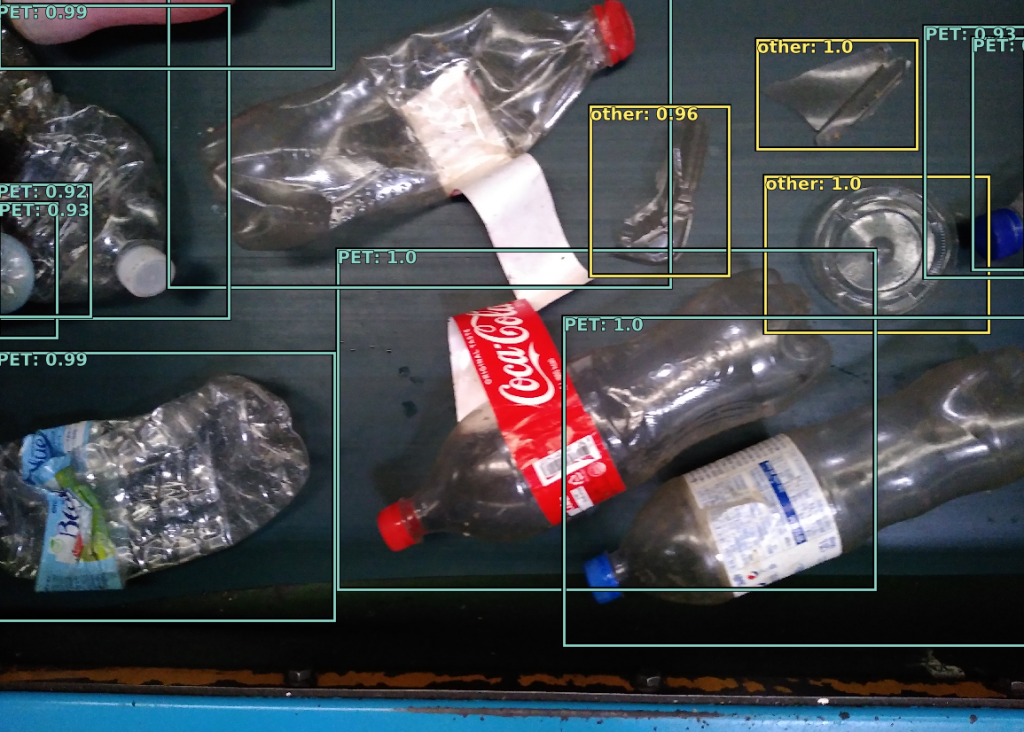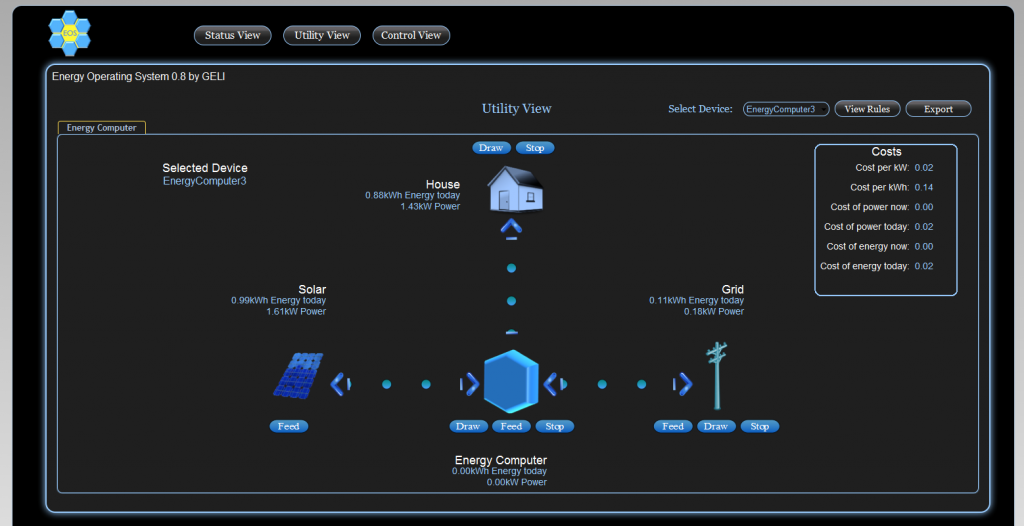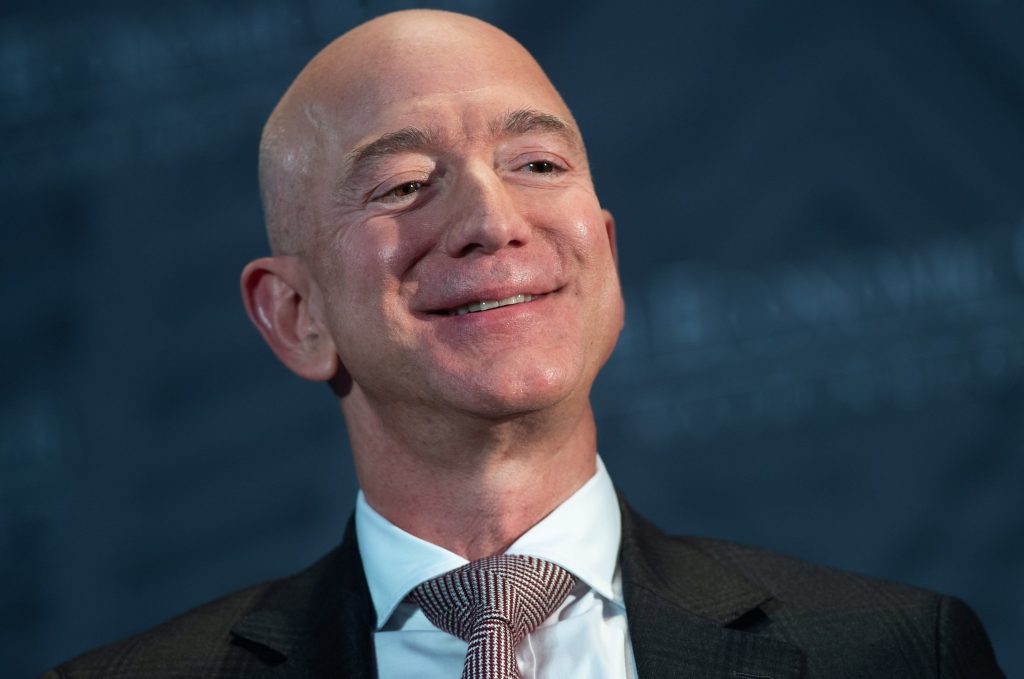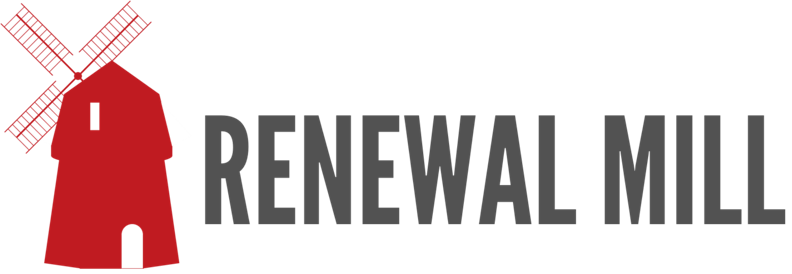To: The Impact Readers
Editing Interviews Takes Time 🙃
You’d think we knew that given our experience with podcast episodes. Hence you’re seeing this awesome newsletter on a Tuesday not a Monday…because quality first.
This week one of our awesome writers on our team went out and interviewed a startup after his post on Organic Waste Bans got a lot of interest. That interview is below among some other really big industry moves – especially on the ESG fund activity side of things.
Let us know how you like it!
In Your Inbox: Startup automating trash sorting; Small acquisitions with big impact; Big moves for big tech in the energy industry; and an awesome interview with Renewal Mills!

Greyparrot, a startup that automates waste composition analysis using AI-powered computer vision software, announced additional funding of $1.1M, bringing their total seed round to $3.5M. Greyparrot’s system provides waste analytics and new insights previously unavailable to waste managers, producers and regulators.
Why does this matter?
What’s next?
Sign up for The Impact and learn the perspectives behind the latest sustainability trends

If you follow the C&I solar and storage markets you have heard of Hanwa Q Cells. Hanwa Q Cells is one of the largest providers of solar modules into the C&I market owning roughly 26% of the market.
Naturally with the move towards more solar + storage systems we are seeing more and more manufacturers vertically integrate to keep margins increasing. Hence this past week we saw Hanwa Q Cells buy one of the last standing battery optimization software companies – Geli OS.
This move allows the fast growing Hanwa to continue to provide a dominant and fully integrated solar + storage system to C&I property owners. This provides increased margin and a stronger competitive advantage when distributing this anywhere in the Americas.
Hanwa isn’t the only one making moves however. With companies like SunPower moving out of manufacturing to focus on their installation business – we are seeing companies like First Solar move out of the O&M business to focus on manufacturing and deploying utility scale solar only.
The complexity of profitably building an energy business that manufactures its own equipment, builds the systems and then owns and operates those sites is immensely challenging.
First Solar selling their O&M business to the PE firm SunPower dealt with on their manufacturing sale shows that groups in the solar business are starting to consolidate into one of those 3 verticals. Manufacturing & Deployment, Own & Operate, Design & Build.

Amazon partners with Vector to make all of Australia a smart grid.
This story was pretty impressive, especially following their creation of a $2B ESG focused fund. This partnership grants Amazon, through AWS access to all of Vector’s smart meter data. This creates a huge revenue source for AWS while also allowing the utility to access and evaluate all of these billions of data points to truly start reworking the electric grid in Australia.
How this helps solar & wind come to fruition in the country is because of the detailed control and energy intelligence this partnership can provide. Various algorithms can be utilized to dissagregate and better predict load profiles across the grid at an appliance level. While also giving intelligence into the ideal locations for potential microgrids. With AI industrializing discovery across the globe AWS and Vector are set to accelerate grid modernization in Australia.
Tesla may become a utility in Germany…
I often question the absurdity of Tesla’s stock price, especially all of the $TSLA to $7000/share conversations you see on twitter past midnight. However, this isn’t about Tesla and investing in it – it is a feeder into how Tesla is changing their brand from a premium electric car manufacturer to an energy tech hardware & software provider. Naturally with a move into electric retail services Tesla can build huge margins given they control all if not most of the equipment needed to become a utility in Germany.
We may start to see multiple new providers enter this market as microgrids enabled by things like Tesla’s grid scale PowerPack become more affordable over time.
Microsoft is committed to the hydrogen economy
Let me preface this by saying Natural gas isn’t going anywhere in the short term. However, by 2030 I wouldn’t be surprised if Hydrogen has caught up or surpassed natural gas usage in rapidly growing green economies across the world.
Hydrogen works as a great clean alternative to natural gas for data centers. Companies like Bloom Energy have already started to retool their fuel cells for hydrogen as well. Microsoft has begun to pilot hydrogen based power for their power hungry datacenters as a way to replace diesel and natural gas. This helps move them towards their 2030 goal of becoming carbon negative.

Last week’s article was on organic waste bans. Organic waste bans are going into place because food waste is a huge driver of climate change. Additionally, consumers are now paying attention to the brands they’re buying from. Just check out our podcast episode with Elliot Roth & Sue Marshall where we discussed alternative ingredients and upcycling.
This week, we talked with Caroline Cotto, Co-Founder and COO of Renewal Mill, to discuss how Renewal Mill is looking to the future of food upcycling and organic waste bans. Renewal Mill was founded in 2016, and today is an award-winning venture-backed startup leading the growth of the upcycled food industry recognized by Fast Company as a World Changing Idea.
Renewal Mill is a next generation ingredients company focused on creating a new circular economy of food that reduces waste by upcycling the fibrous byproducts of food manufacturing into delicious, high quality ingredients. Food waste is the world’s $1.2 trillion problem, and our processes can be applied to an array of byproducts.
Can you describe what your company does?
Renewal Mill is fighting climate change and global food loss by upcycling the byproducts of manufacturing into premium ingredients and finished products. Our main ingredients are the soybean pulp leftover from soy milk and oat pulp leftover from oat milk. We turn these byproducts into a high fiber, high protein, gluten free flour.
What is your value proposition to your customers?
Renewal Mill’s value proposition is to turn waste into revenue. Our target customers are food manufacturers that create byproducts that would normally go to farmers for animal feedstock or the landfill.
Our first partner is a tofu company in California that is dealing with organic waste bans going into effect, who have also had inconsistency with selling to farmers. As the price of premium feed goes down, sometimes farmers don’t pick up the soybean pulp that they had been using for animal feed. In this case, the company is forced to pay to have it taken to a landfill. Some other partners don’t have any farmers in their vicinity, and as a result are forced to pay to have it taken to a landfill.
Okra can build up as a waste byproduct in a facility and take up to a quarter of a factory floor footprint before disposal. Facilities need to have a consistent solution, and that’s something that we’re offering. By partnering with us, this is a much more sustainable option and opportunity to have consistency.
Renewal Mill is trying to solve this problem for food manufacturers while keeping this valuable nutrition going to its best and highest use, which is feeding people.
What is the current ecosystem/market landscape? How does the ecosystem benefit from your technology?
Upcycling has been growing as a trend over the last two years. There are some other folks doing upcycling of byproducts, but none of them are upcycling okara. Some companies are upcycling spent grain from beer brewing, seed cakes from oil processing, things like that – a lot of produce upcycling is happening.
Even though there are others contributing in this market space, food waste is still a huge issue. We work very closely with these other brands. We’re trying to build out the market for upcycled food and formed the Upscaled Food Association, which has now grown to 70+ members. This association is working on a product certification program so that you can have your product certified the way that it would be certified organic or certified non-GMO. The association released a formal definition of upcycled food back in April of this year. As of right now, a standards committee has been formed to create the standard that brands will be judged against in order to get their products certified.
What are the current trends in the sector?
We’re seeing a lot of demand from buyers who want upcycled products, as well as demand retailers, like Whole Foods and Target, that want labels designating upcycled products. We’re also seeing a lot of e-commerce platforms starting to include “upcycled” as a filter. Outside of the food industry, upcycled products are also present in retail, makeup, plastics, and packaging.
What does the future look like?
We’re trying to help other companies who are under prepared or ill-equipped to deal with their byproducts. Some organizations are setting their own goals, such as zero waste to landfill initiatives in preparation for California’s organic waste bans going into effect. Renewal Mill aims to help and be part of this solution.
Our Outlook
Renewal Mill is a prime example of innovation in the space – upcycling food waste into valuable ingredients. Innovations that address waste management and the circular economy will do well in the upcoming years, especially with upcoming policy. As such, we are more likely to see startups emerge in the space that create value out of different byproducts, rather than competing for the same byproducts.
Join a conversation between Elliot Roth of Spira Inc & Sue Marshall of NetZRO as they debate the how food waste is actually contributing to climate change and what is being done to solve this broad topic of food waste driven pollution.
Check out and subscribe to our Youtube Channel for future episodes!
Writers: Swarnav S Pujari, Ian Sumner, Daniel Kriozere
If you aren’t absolutely thrilled with The Impact, reply and let us know why. Or you can unsubscribe from all updates by clicking here.
Copyright © The Impact 2020. All Rights Reserved || 19 Morris Ave, Bldg 128, Brooklyn NY 11205
Develop your market map of up-and-coming climate startups and market opportunities by subscribing to our weekly newsletter for free.